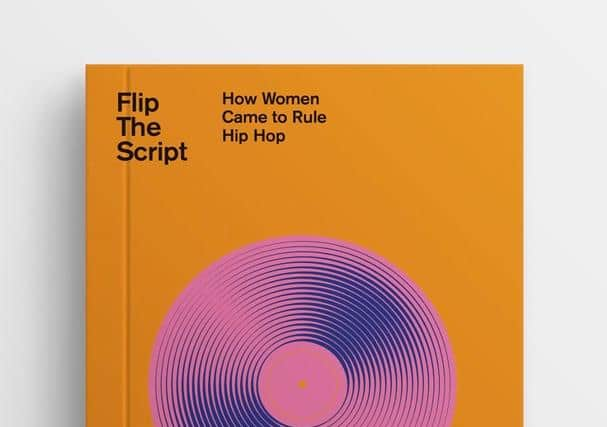Book review: Flip the Script: How Women Came To Rule Hip-Hop, by Arusa Qureshi


Growing up as a first generation South Asian Muslim, Edinburgh-based arts writer Arusa Qureshi found her cultural tribe, not in the Bollywood romances of her parents’ generation, but in the revolutionary sound of early US hip-hop, which she says “made me feel like it was okay to be the only brown person in the room.”
Qureshi went on to write her undergraduate English dissertation on “defiance in hip-hop” and there is an academic tone to parts of her analysis in Flip the Script, the latest in Edinburgh indie publisher 404 Ink’s Inklings series of non-fiction essays.
Advertisement
Hide AdQureshi’s focus here is on the unsung sheroes of hip-hop. She illustrates her point astutely by opening her first chapter with a list of five female pioneers from hip-hop’s birthplace, the Bronx, none of whom have anything like the profile or acknowledgement of their male peers. There is only so far Qureshi can go in such a slim volume to redress the balance but she uses her platform to showcase the relatively late blooming UK scene via interviews with the pioneers, evangelists, innovators and next generation righteous rappers, starting at its London epicentre before tracing the rise in regional voices/accents such as Birmingham’s witty Lady Leshurr, Scottish Album of the Year winner Nova, Welsh Music Prize winner Deyah and Northern Ireland-based Filipino Sarah Santos, aka Don Chi.


She captures the eloquence and enthusiasm of Clapham duo Cookie Crew, who refused to be sexualized like many of their peers, hip-hop columnist Vie Marshall, who championed British hip-hop, particularly female rappers, and ran Muthaland, a hip-hop club night which banned misogynistic lyrics, and Muneera Pilgrim of Muslim rap duo Poetic Pilgrimage, who found greater respect in the US, where there are stronger links between hip-hop and Islam.
The whistle-stop narrative also examines the objectification of women in hip-hop, salutes efforts to nurture a rapping sisterhood, questions the cultural gatekeeping which limits the number of female rappers who get to squeeze through the glass skylight and touches on the question of what gender has to do with talent anyway.
None of her subjects seek to occupy a gender ghetto but, more than 30 years on from Cookie Crew’s chart heyday, the commercial profile of Britain’s female rappers still does not reflect the fertility of the grassroots scene. Though mindful of the barriers to greater visibility, Flip the Script maintains a celebratory tone, canvassing positive, practical ways to tackle the deficit – which boil down to access, a platform and recognition. It remains to be seen what opportunities the pandemic reset could create for female and non-binary rappers – regardless, the call goes out to “hold the door open for each other.”
Flip the Script: How Women Came To Rule Hip-Hop, by Arusa Qureshi, 404 Ink, £7.50
A message from the Editor
Thank you for reading this article. We're more reliant on your support than ever as the shift in consumer habits brought about by coronavirus impacts our advertisers.
If you haven't already, please consider supporting our trusted, fact-checked journalism by taking out a digital subscription at https://www.scotsman.com/subscriptions